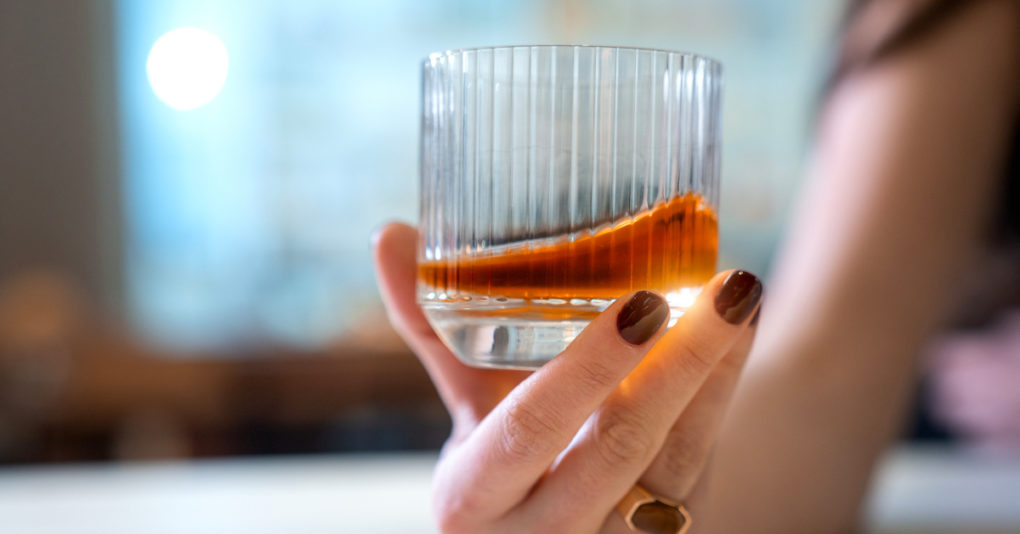
The new data comes from the world’s first global survey of women in whisky, conducted last month by the OurWhisky Foundation. Titled, “Do You Even Like Whisky? The Barriers Holding Back Women in the Industry,” the report received responses from women across primarily the U.K. (53%), the U.S. (27%), Australia (5%), Canada (3%), Ireland (3%) and India (1%). Job roles were split across events and on-trade (40%), operations (25%), office roles such as sales and marketing positions (23%) and retail (12%).
While chances are very high women working those roles not only enjoy whisky, but are experts in the category, more than 80% of women are still asked if they “actually like whisky” while at work or while making a purchase, with 89% agreeing that consumers still widely perceive whisky to be a man’s drink.
Other stats paint an even more vivid picture of gender disparity:
- 87% of respondents felt that they experience more challenges in the workplace than their male counterparts, reporting the top three most challenges they face are unconscious bias (84%), stereotyping (76%) and a lack of representation (54%).
- Only 16% believe the industry is working adequately to change whisky’s masculine image, with 67% stating that whisky’s masculine reputation complicates their job.
- As for representation, 16% of respondents feel that women are portrayed equitably in whisky advertising and marketing, and in industry awards. Just 10% feel that the media provides a fair representation of women in the industry.
In the workplace, respondents expressed concern over being working mothers:
- The survey unearthed that 70% of women aged 25 to 30 harbor anxieties about how motherhood might impact their career. Only 39% felt that their company’s parental policies were sufficiently supportive.
- 41% of mothers said they did not feel supported when returning to work.
The report also sheds light on the prevalence of unconscious bias and microaggressions in the industry. Of those working in consumer-facing roles such as tours or tastings:
- An overwhelming 89% have been talked over or had their expertise questioned.
- 83% have noticed a preference among customers to engage with male colleagues instead.
The report also demonstrates widespread incidents of sexual harassment and discrimination.
- A significant 70% of respondents have been subjected to inappropriate or sexual remarks while on duty, with 33% experiencing inappropriate physical contact.
- This figure rises to 44% for those in consumer-facing roles.
Women leaders in whiskey have pointed to improvements in the industry in recent years, but these figures account for 27% of consumer-facing women who have been working in the industry for five years or less, indicating that issues of sexism are still prevalent.
“It’s important to realize that while it’s perhaps easy to shrug off a solo incident, these micro-aggressions build up over time to have a devastating impact on the women in our industry,” said Becky Paskin, founder of the OurWhisky Foundation. “The escalation of these attitudes into inappropriate verbal and physical behavior cannot be ignored. The industry needs to take this issue extremely seriously.”
The statistics echo industry-wide issues: the 2023 Women Raising the Bar Study showed only one in 10 women working in the beverage alcohol industry believe there has been a significant positive change toward women overall in the last five years.
The solutions businesses can focus on, according to the foundation, include improving intersectional representation of women in advertising and marketing, while avoiding stereotyping. Other industry experts have also warned of typecasting while targeting certain demographics. The foundation has tackled issues of representation before: In 2020 another report found that the world’s leading whiskey brands posted 228% more images featuring men than women across their social media accounts. Non-white people were represented in just 17.9% of images. As a response, the foundation created a free collection of unbranded stock photos for media outlets or content creators to download and use, depicting people of all genders, races, and ages.
But external inclusive marketing needs to match an internal inclusive culture: The foundation also emphasized the significance of company-wide unconscious bias, diversity, equity, and inclusion (DE&I) training across entry-level roles to the senior leadership. The introduction of bystander training and clear anti-harassment protocols can serve as proactive steps to foster a safer working environment.
Addressing wage disparities through company-wide salary audits and promoting pay transparency is another step (the gender gap in pay across the U.S. has remained relatively stable over the past 20 years, with women earning an average of 82% of what men earned). Granting flexible working hours and locations for all parents, not just mothers, can also facilitate a more supportive and inclusive workspace.